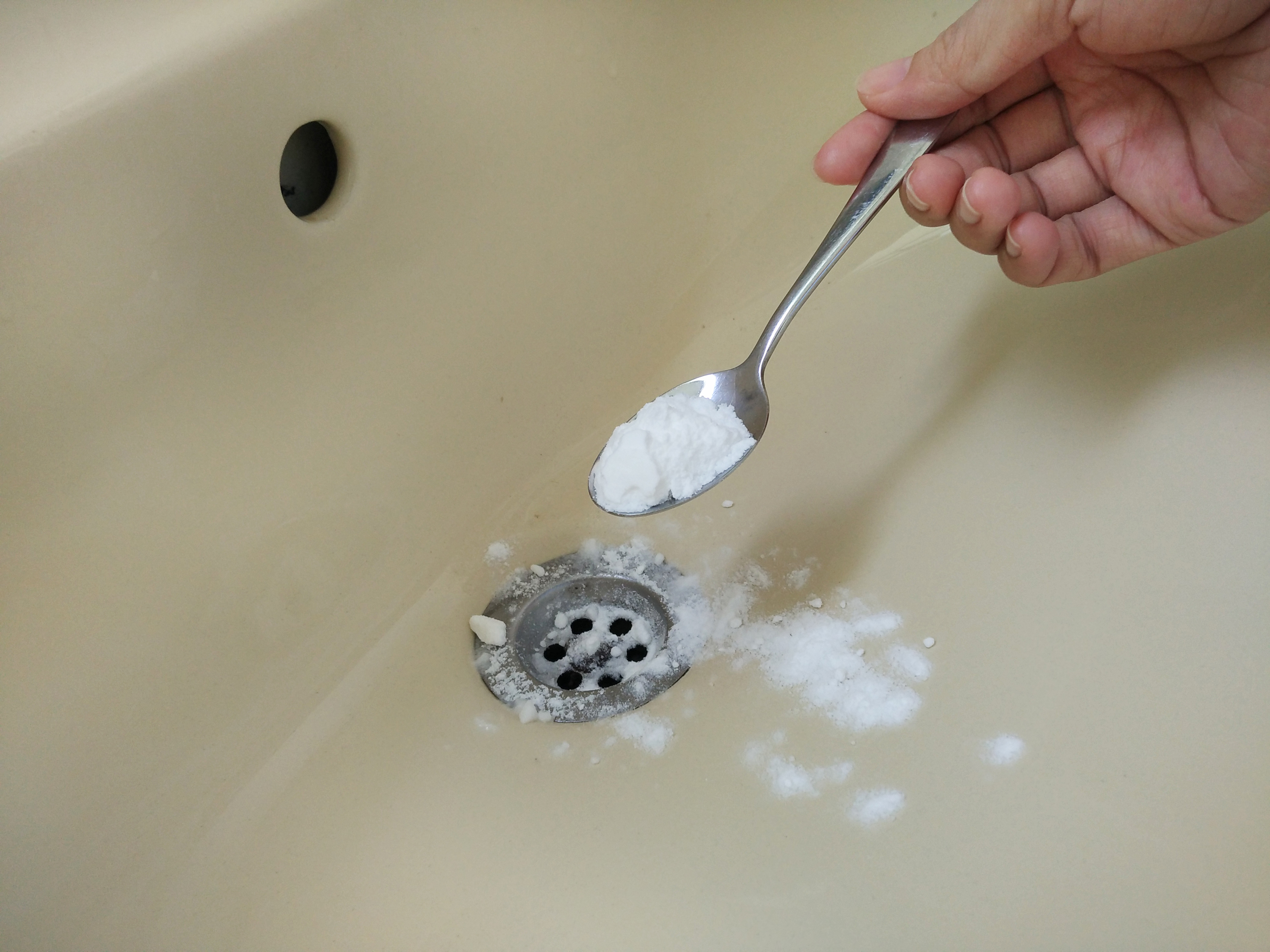If you've noticed that the water flow in your kitchen sink has become slow and sluggish, you're not alone. It's a common problem that many homeowners face and it can be frustrating to deal with. But before you call a plumber or spend money on expensive solutions, it's important to understand the root causes of slow water flow in your kitchen sink and how to fix it.Slow Water Flow in Kitchen Sink: Causes and Solutions
The good news is that in most cases, you can fix slow water flow in your kitchen sink on your own without any professional help. The first step is to identify the cause of the problem. Is it just one sink that has slow water flow or is it all of the sinks in your home? If it's just one sink, then the issue is most likely localized to that specific sink. Here are some common causes and solutions for slow water flow in kitchen sinks:How to Fix Slow Water Flow in Kitchen Sink
1. Clogged aerator - The aerator is a small screen that is attached to the end of the faucet. Over time, it can become clogged with mineral deposits and debris, which can restrict water flow. To fix this, unscrew the aerator and clean it with a mixture of equal parts water and vinegar. This will dissolve any buildup and restore the water flow. 2. Blocked pipes - If the water flow in all of your sinks is slow, then the issue could be with your pipes. Over time, debris, grease, and other materials can accumulate in your pipes, causing blockages. You can try using a plunger or a drain snake to clear the blockage. If that doesn't work, you may need to call a professional plumber. 3. Low water pressure - If your water pressure has always been low, the problem could be with your home's water supply. Contact your local water utility company to see if there are any issues with the water pressure in your area. 4. Corroded pipes - If your home has older pipes, they may be corroded or damaged, which can restrict water flow. In this case, you may need to replace the pipes to fix the issue. 5. Faulty shut-off valve - The shut-off valve is responsible for controlling the flow of water to your sink. If it's not fully open, it can restrict water flow. Make sure the valve is fully open and if it's damaged, it will need to be replaced.5 Common Reasons for Slow Water Flow in Kitchen Sink
If your kitchen sink is slow draining, it's likely due to a clog in the pipes. Here are some steps you can take to unclog your sink: 1. Use a plunger - A plunger can help to dislodge and remove clogs in your pipes. Fill your sink with a few inches of water and place the plunger over the drain, making sure it covers the entire opening. Push down and pull up on the plunger several times to create suction and hopefully remove the clog. 2. Try a drain snake - A drain snake, also known as a plumber's snake, is a long flexible tool that can be inserted into your pipes to break up and remove clogs. Insert the snake into the drain and turn the handle to break up the clog. 3. Use a mixture of baking soda and vinegar - If your clog is caused by organic material, such as food scraps, a mixture of baking soda and vinegar can help to break it down. Pour half a cup of baking soda down the drain, followed by half a cup of vinegar. Let it sit for 15 minutes and then flush the drain with hot water.How to Unclog a Slow Draining Kitchen Sink
If the water pressure in your kitchen sink is low, there are a few things you can do to increase it: 1. Clean the aerator - As mentioned earlier, a clogged aerator can restrict water flow. Cleaning it should help to increase the water pressure. 2. Check for leaks - Leaks in your pipes can lead to low water pressure. Inspect your pipes for any leaks and fix them as soon as possible. 3. Replace the showerhead - If your sink has a low-flow showerhead, consider replacing it with a higher-flow model that will increase the water pressure.How to Increase Water Pressure in Kitchen Sink
There are many possible reasons why your kitchen sink water is flowing slowly. It could be due to a clogged aerator, blocked pipes, low water pressure, or corroded pipes. By identifying the cause, you can take the necessary steps to fix the issue and restore proper water flow.Why is My Kitchen Sink Water Flowing Slowly?
To prevent slow water flow in your kitchen sink, it's important to regularly clean and maintain it. Here are some tips: 1. Use a drain cleaner - To prevent buildup and clogs in your pipes, use a drain cleaner once a month. This will help to keep your pipes clear and prevent slow draining. 2. Dispose of food scraps properly - Avoid putting large food scraps down your sink, as they can cause clogs. Instead, dispose of them in the garbage or compost. 3. Regularly clean the aerator - As mentioned earlier, a clogged aerator can restrict water flow. Make it a habit to clean it every few months to prevent this issue.How to Clean and Maintain a Slow Draining Kitchen Sink
If you're still experiencing slow water flow in your kitchen sink after trying the above solutions, it may be time to troubleshoot the issue further. Consider the age and condition of your pipes, check for any leaks, and make sure your shut-off valve is fully open. If you're still unable to identify the problem, it may be best to call a professional plumber for assistance.How to Troubleshoot Slow Water Flow in Kitchen Sink
If your kitchen sink is slow draining, you can try using a mixture of baking soda and vinegar to help unclog it. As mentioned earlier, pour half a cup of baking soda down the drain, followed by half a cup of vinegar. Let it sit for 15 minutes and then flush the drain with hot water. This should help to break up and remove any clogs.How to Fix a Slow Draining Kitchen Sink with Baking Soda and Vinegar
The best way to deal with slow water flow in your kitchen sink is to prevent it from happening in the first place. Here are some tips to keep in mind: 1. Regularly clean and maintain your sink - By keeping your sink clean and free from buildup, you can prevent clogs and slow draining. 2. Be mindful of what you put down the sink - Avoid putting large food scraps, grease, or other materials down your sink, as they can cause clogs. 3. Keep an eye on your water pressure - If you notice a sudden decrease in water pressure, it could be a sign of a larger issue. Address it as soon as possible to prevent further problems. In conclusion, slow water flow in your kitchen sink can be a nuisance, but it's usually fixable. By understanding the causes and trying these solutions, you can restore proper water flow and keep your sink functioning properly. Remember to regularly clean and maintain your sink to prevent future issues and don't hesitate to call a professional if needed.How to Prevent Slow Water Flow in Kitchen Sink
Kitchen Sink Water Running Slow? Here's What You Can Do

The Importance of a Functional Kitchen Sink
 The kitchen sink is an essential part of any household. It's where we wash dishes, prepare food, and even fill up water bottles. So, when the kitchen sink water starts running slow, it can be a major inconvenience. Not only does it make everyday tasks take longer, but it can also be a sign of underlying plumbing issues. In this article, we'll explore the common causes of a slow kitchen sink and what you can do to fix it.
The kitchen sink is an essential part of any household. It's where we wash dishes, prepare food, and even fill up water bottles. So, when the kitchen sink water starts running slow, it can be a major inconvenience. Not only does it make everyday tasks take longer, but it can also be a sign of underlying plumbing issues. In this article, we'll explore the common causes of a slow kitchen sink and what you can do to fix it.
Causes of Slow Kitchen Sink Water
:max_bytes(150000):strip_icc()/close-up-of-overflowing-bathroom-sink-90201417-579787783df78ceb865822d8-5c30d5dac9e77c0001149e8f.jpg) There are several reasons why your kitchen sink water may be running slow. The most common cause is a clogged drain. Over time, food scraps, grease, and soap scum can build up in the drain, causing it to clog and slow down the water flow. Another culprit could be a faulty faucet aerator. This small mesh screen at the end of the faucet can also become clogged, restricting the water flow. Additionally, old or damaged pipes can also cause slow running water.
There are several reasons why your kitchen sink water may be running slow. The most common cause is a clogged drain. Over time, food scraps, grease, and soap scum can build up in the drain, causing it to clog and slow down the water flow. Another culprit could be a faulty faucet aerator. This small mesh screen at the end of the faucet can also become clogged, restricting the water flow. Additionally, old or damaged pipes can also cause slow running water.
Steps to Fix a Slow Kitchen Sink
 1. Clear the Clogged Drain
To clear a clogged drain, you can try using a plunger or a drain snake. Place the plunger over the drain and push down and up repeatedly to create suction. This should loosen and dislodge any debris blocking the drain. If that doesn't work, try using a drain snake by inserting it into the drain and twisting it to catch and pull out any clogs.
2. Clean the Faucet Aerator
To clean the faucet aerator, unscrew it from the end of the faucet and soak it in a mixture of water and vinegar for a few hours. This will help dissolve any mineral deposits or debris that may be clogging it. Once soaked, rinse it with water and screw it back onto the faucet.
3. Check for Damaged Pipes
If the above solutions do not fix the slow running water, it may be a sign of damaged pipes. In this case, it's best to call a professional plumber to assess and repair the issue.
1. Clear the Clogged Drain
To clear a clogged drain, you can try using a plunger or a drain snake. Place the plunger over the drain and push down and up repeatedly to create suction. This should loosen and dislodge any debris blocking the drain. If that doesn't work, try using a drain snake by inserting it into the drain and twisting it to catch and pull out any clogs.
2. Clean the Faucet Aerator
To clean the faucet aerator, unscrew it from the end of the faucet and soak it in a mixture of water and vinegar for a few hours. This will help dissolve any mineral deposits or debris that may be clogging it. Once soaked, rinse it with water and screw it back onto the faucet.
3. Check for Damaged Pipes
If the above solutions do not fix the slow running water, it may be a sign of damaged pipes. In this case, it's best to call a professional plumber to assess and repair the issue.
Preventative Measures for a Smooth-Running Kitchen Sink
 To avoid future kitchen sink water problems, there are a few preventative measures you can take. Avoid pouring grease or oil down the drain, as it can solidify and clog the pipes. Use a drain catcher to catch food scraps and prevent them from going down the drain. Regularly clean the faucet aerator to prevent mineral deposits from building up. And finally, if you notice any slow water flow, address it immediately to prevent it from turning into a bigger issue.
In conclusion, a slow-running kitchen sink can be a hassle, but it's usually a simple fix. By following the steps mentioned above and taking preventative measures, you can ensure a smooth and functional kitchen sink for all your household needs.
To avoid future kitchen sink water problems, there are a few preventative measures you can take. Avoid pouring grease or oil down the drain, as it can solidify and clog the pipes. Use a drain catcher to catch food scraps and prevent them from going down the drain. Regularly clean the faucet aerator to prevent mineral deposits from building up. And finally, if you notice any slow water flow, address it immediately to prevent it from turning into a bigger issue.
In conclusion, a slow-running kitchen sink can be a hassle, but it's usually a simple fix. By following the steps mentioned above and taking preventative measures, you can ensure a smooth and functional kitchen sink for all your household needs.
















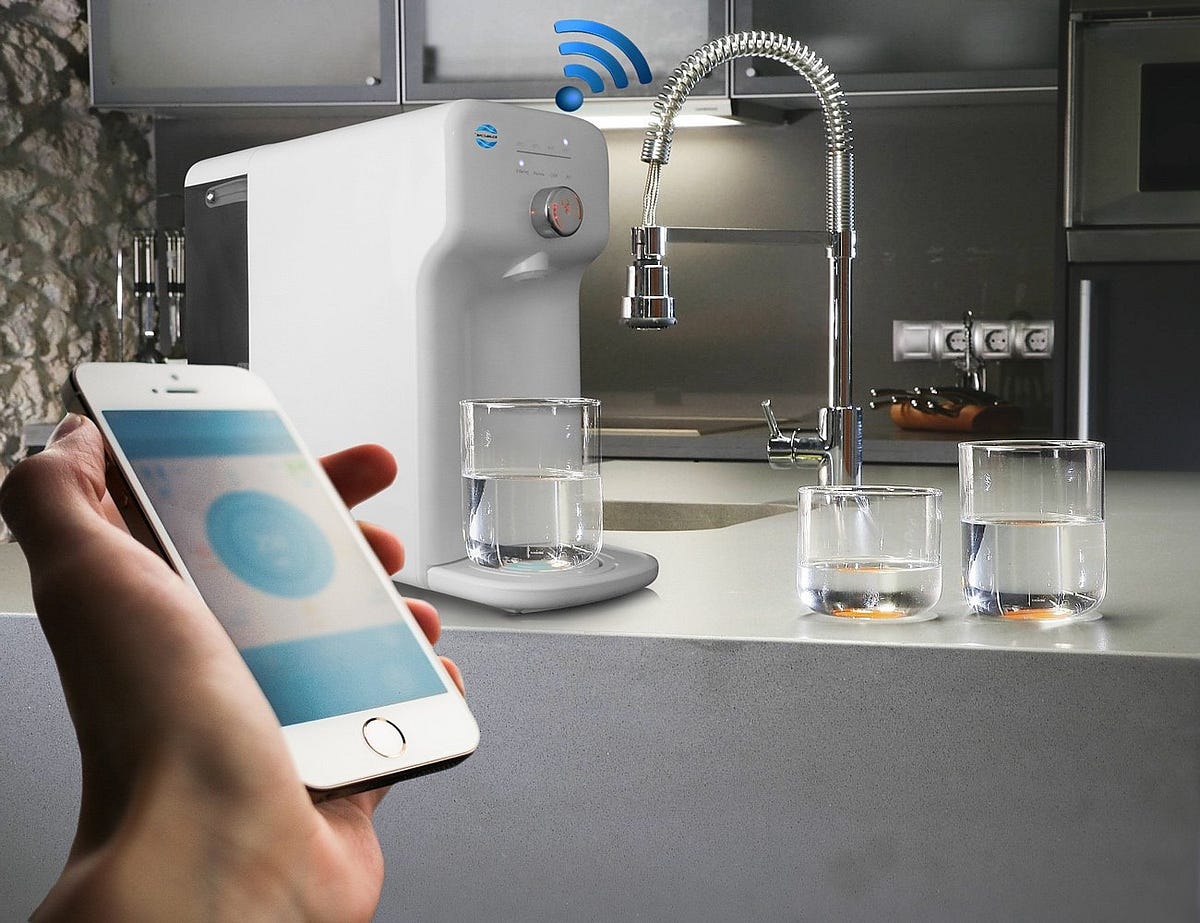



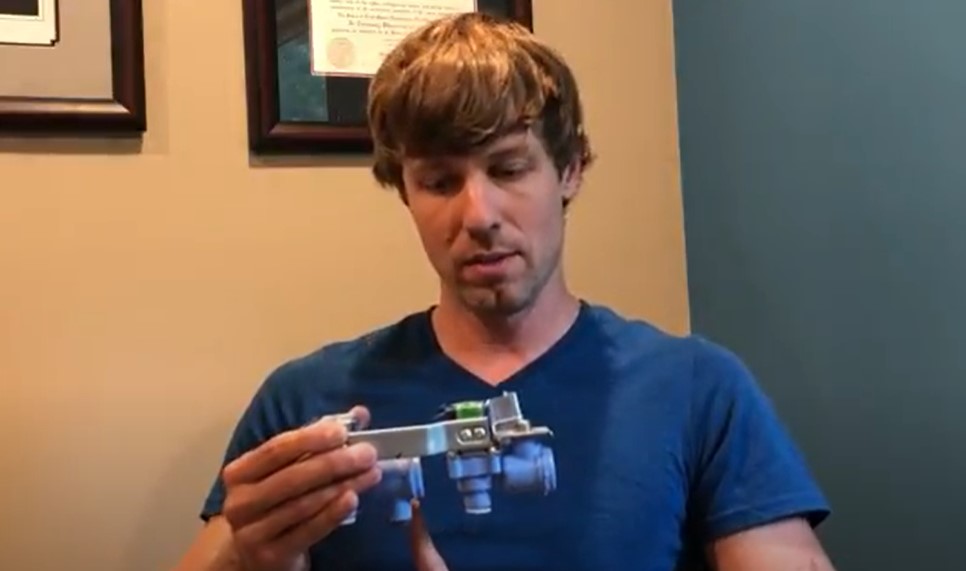





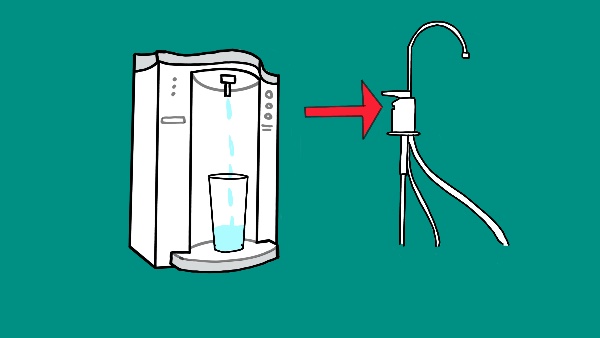







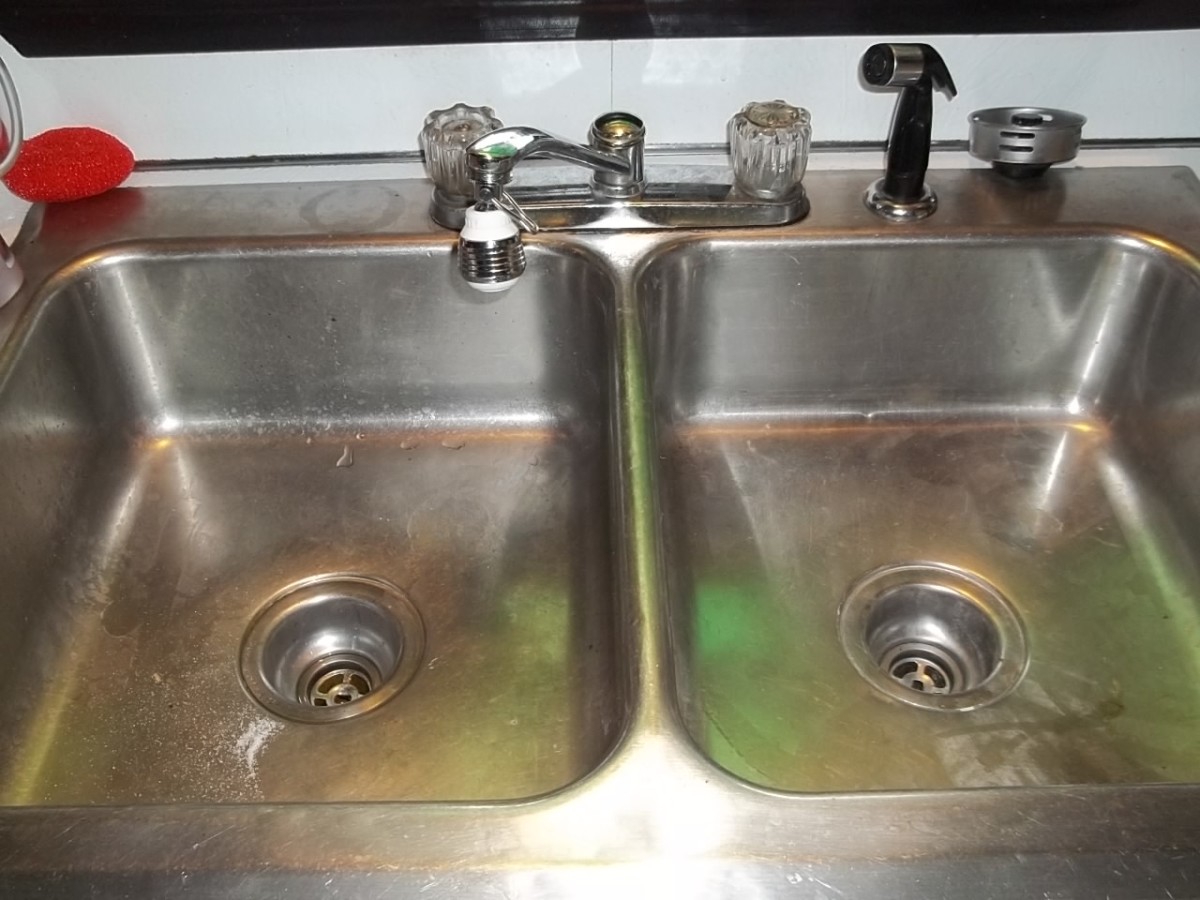

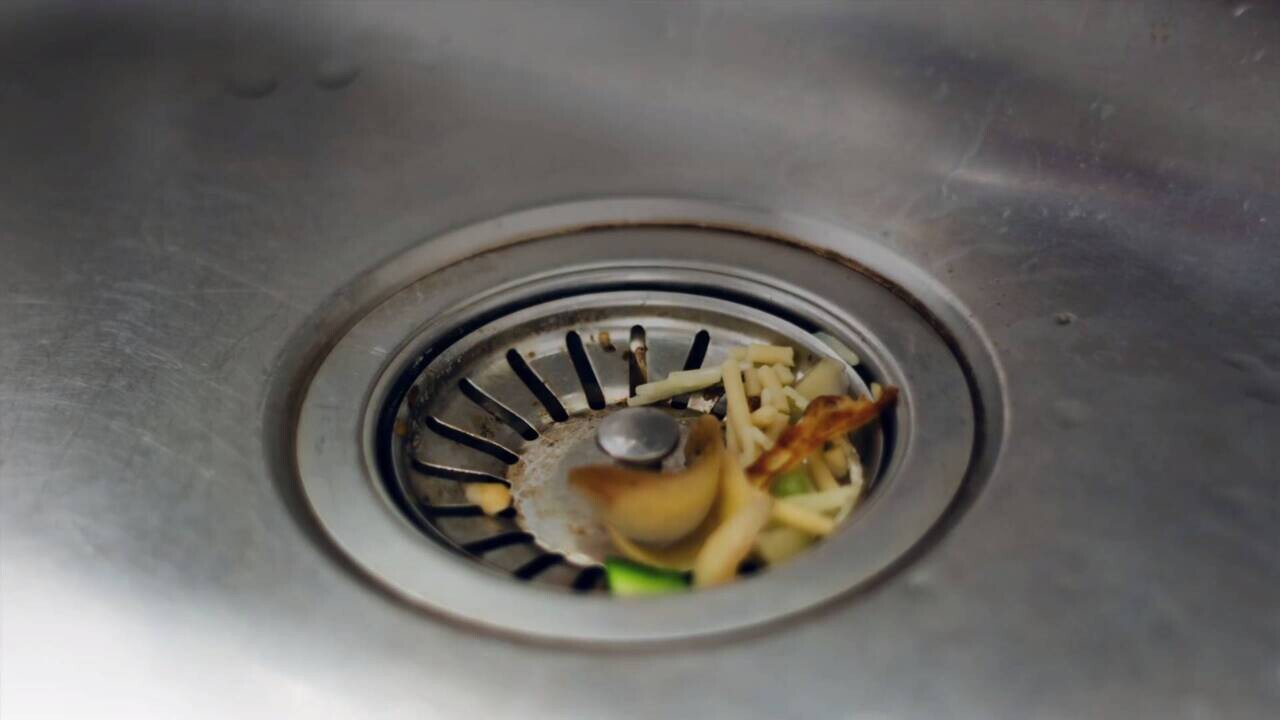


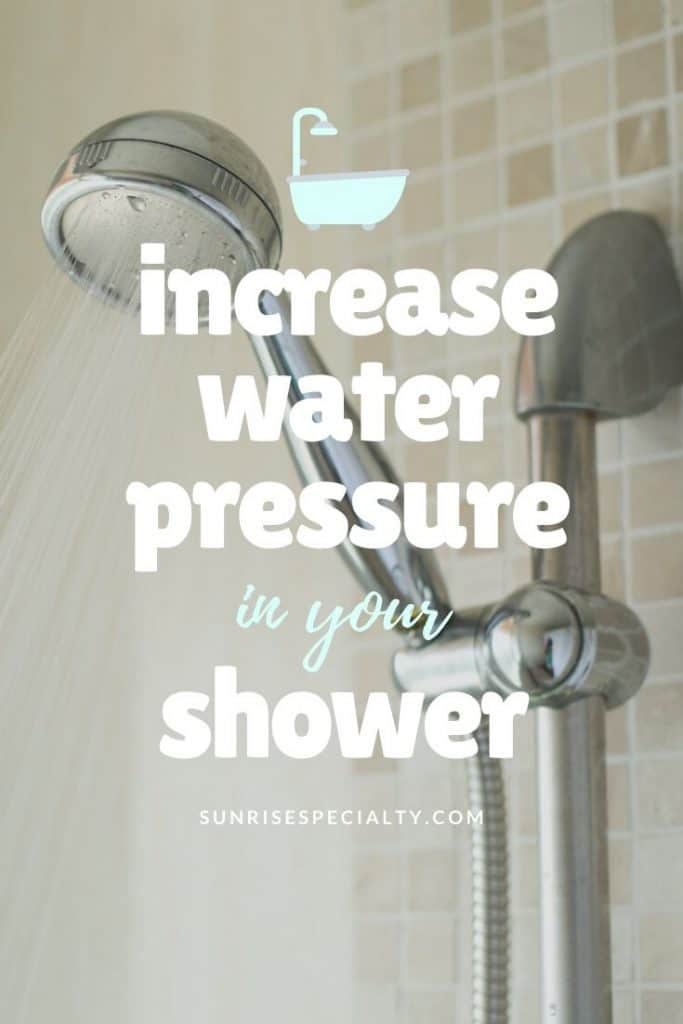
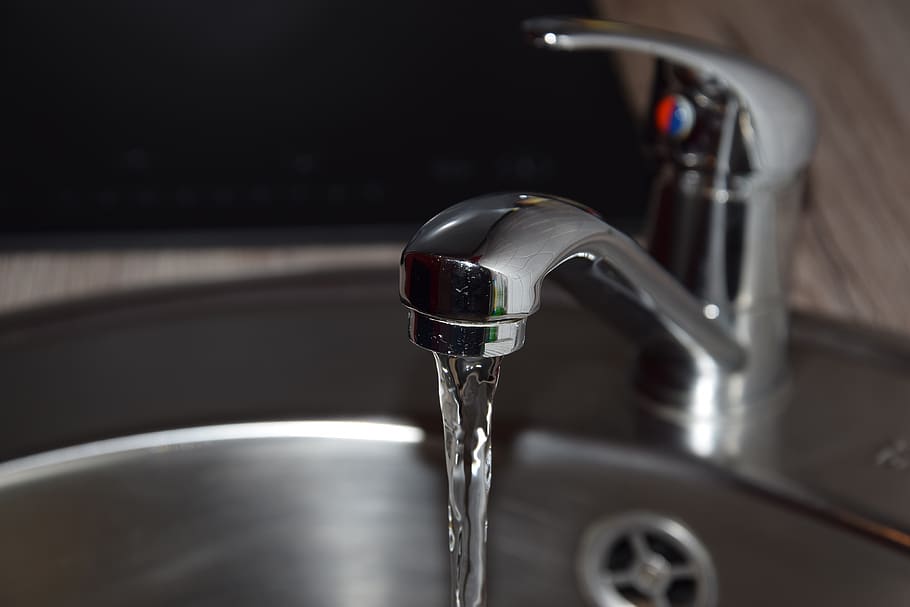
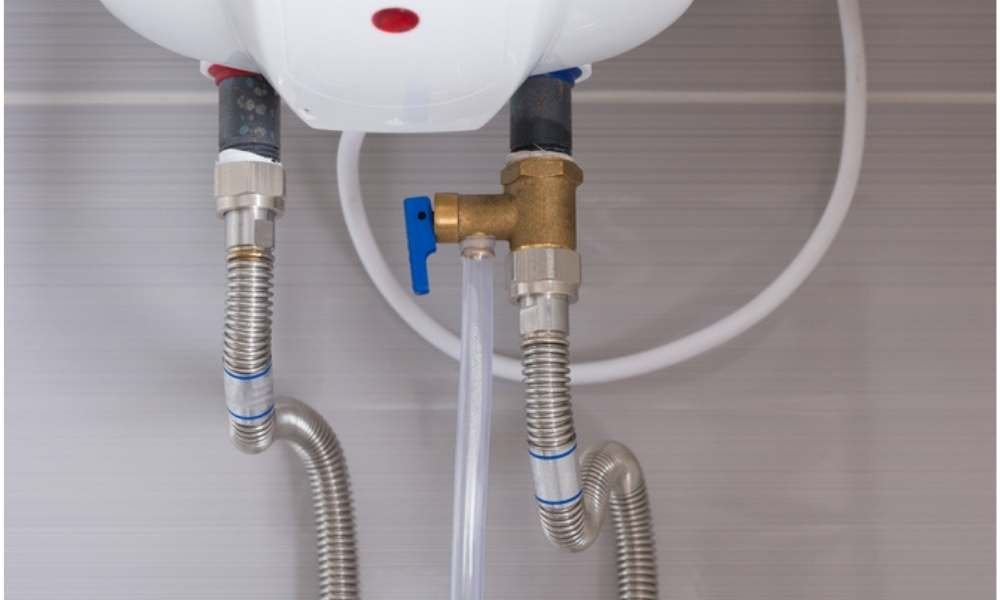



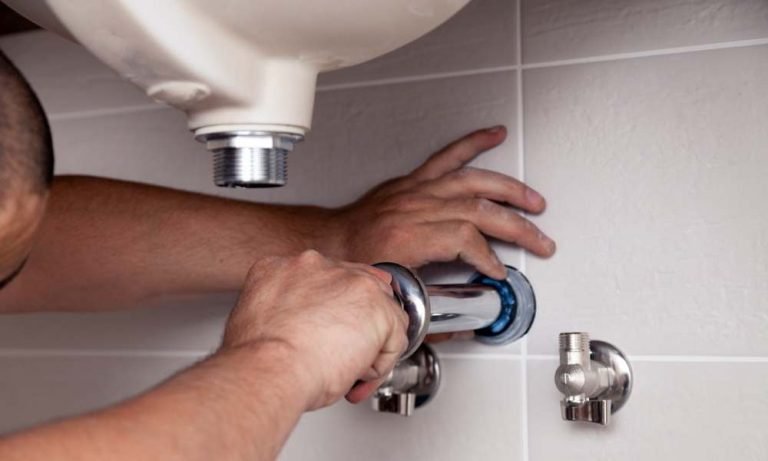
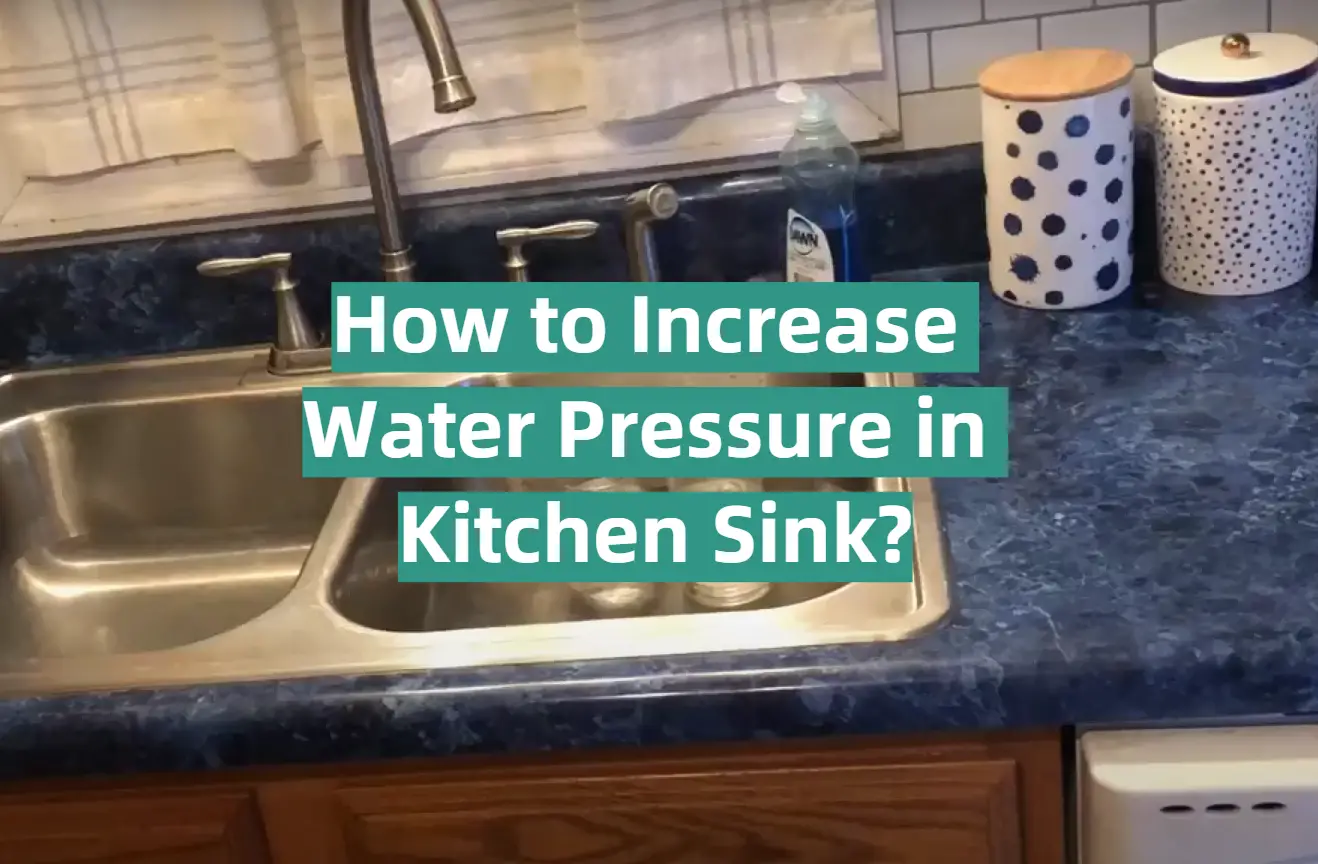















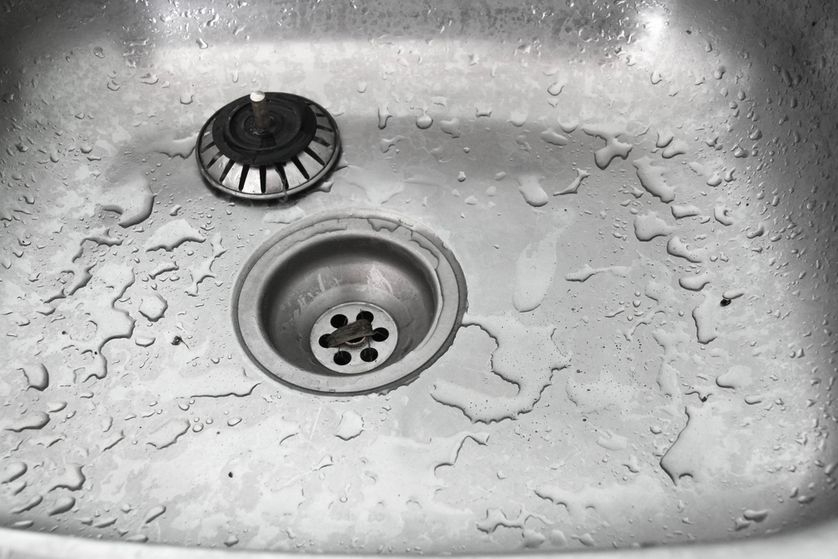
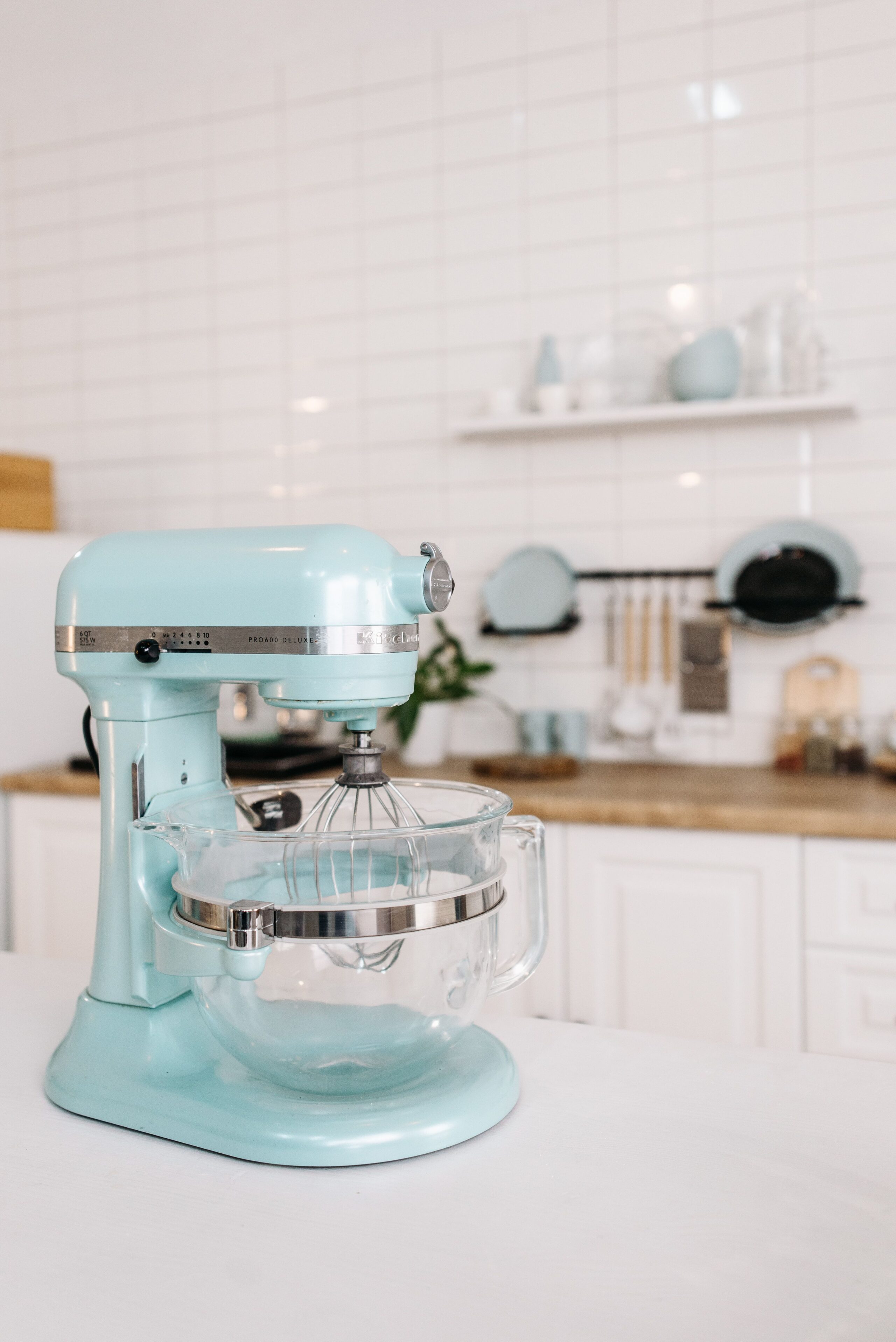








:max_bytes(150000):strip_icc()/freshen-and-unclog-drain-with-baking-soda-1900466-22-bbf940b70afa4d5abef0c54da23b1d3f.jpg)

:max_bytes(150000):strip_icc()/freshen-and-unclog-drain-with-baking-soda-1900466-18-1a5b5da01939471ca8f8823865bd1ce8.jpg)

